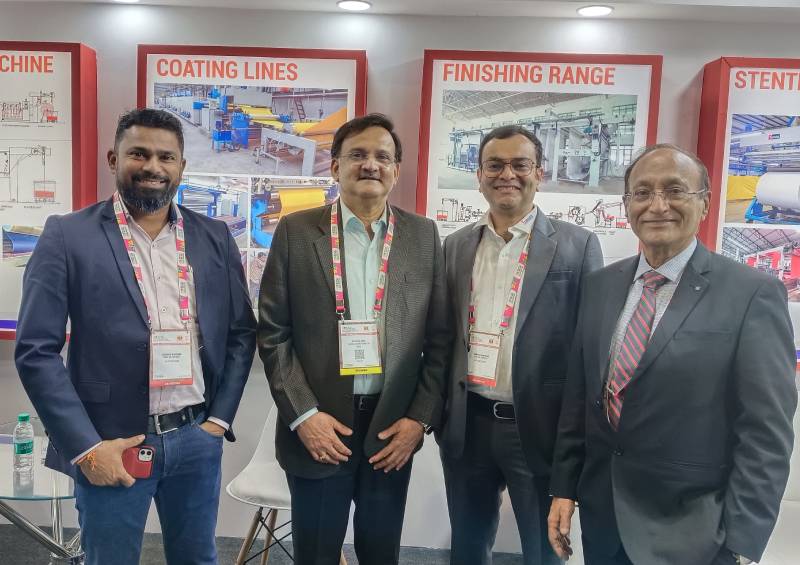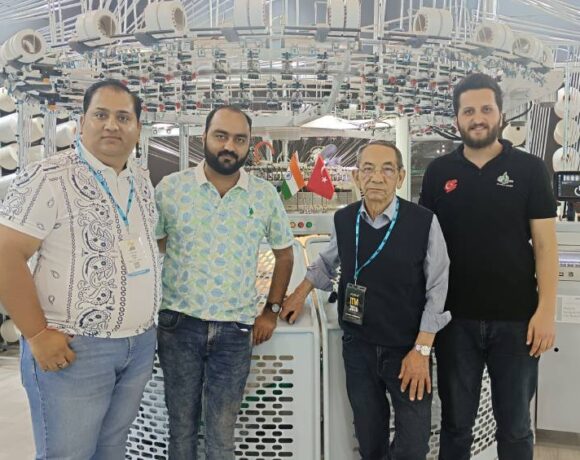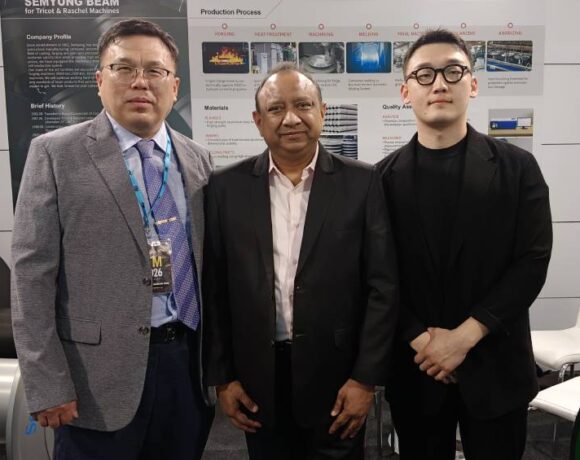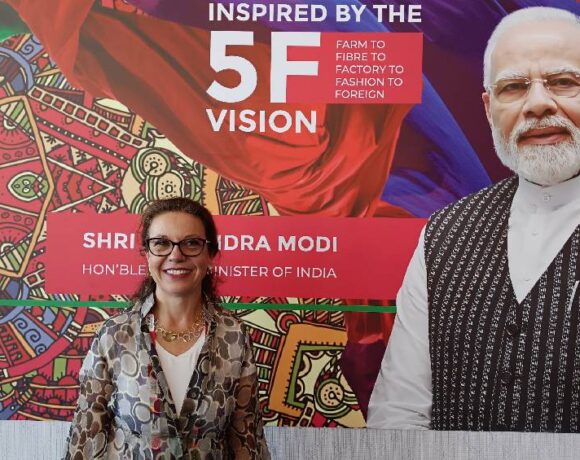Bharat Tex Turned Out To Be A Great Platform For Networking And A Resounding Success!

Bharat Tex has come at the right time and provided a significant boost of confidence and motivation to Indian manufacturers, opines Gurudas Aras, while Prashant Mangukia observes that over the last two to three years, there has been a noticeable uptick in domestic consumption
How has your experience been at Bharat Tex exhibition?
Prashant: Well, initially, we didn’t have much enthusiasm about Bharat Tex because it wasn’t primarily a machinery exhibition. However, upon attending, we realized we had underestimated its potential. It turned out to be a great platform for networking, despite its focus not being on machinery. We had the opportunity to reconnect with many of our old customers, which was quite beneficial for us.
Aras: I echo Prashant’s thoughts. Honestly, none of us were sure what to expect from Bharat Tex. But I must say, the organizers did an excellent job within just a few months of planning. The scale of the exhibition, with 3500 exhibitors, was impressive. More importantly, the footfall exceeded our expectations right from Day 1. It was particularly convenient for us as all our key customers were present, mainly concentrated in halls 4 and 5. This made networking effortless. By the third day, it was evident that Bharat Tex was a resounding success. I don’t think even the organizers anticipated such a tremendous response. It’s been a fantastic experience being a part of it.
Could you share your insights on the current trends in the textile market?
Aras: According to a recent survey conducted by ITMF, there’s promising news for the global textile industry. The survey, released this month, indicates that over 70% of industry leaders believe that we’re on the brink of a global turnaround. This suggests that the industry is primed for gradual improvement. In light of this, event like Bharat Tex has come at the right time. It has provided a significant boost of confidence and motivation to Indian manufacturers, especially with the presence of international buyers. The textile industry has endured a prolonged recession, but it appears that we’re finally nearing a turning point.
Could you elaborate on the innovations you observed at Bharat Tex?
Aras: One of the standout areas for innovation was at the stalls sponsored by the Ministry of Textiles, where a variety of innovations were showcased. Additionally, individual exhibitors, particularly in the home textiles sector, showcased significant innovations, particularly in fabric finishing. I noticed a trend towards anti-microbial properties and fabrics that are skin-friendly. There was a plethora of new fabric types introduced by various exhibitors. Moreover, I was impressed by the emphasis on recycling as a part of sustainability efforts. Many exhibitors integrated recycling into their innovative solutions, showcasing a commitment to environmental sustainability across the board.
In line with the sustainability theme of the exhibition, what offerings does Yamuna Machines Works have?
Prashant: Sustainability is a significant focus for us at Yamuna Machines Works. In terms of wet processing, we’ve dedicated efforts to reduce water and steam consumption. Additionally, we’re striving to make our manufacturing plants more sustainable. This involves addressing the carbon footprint generated during the manufacturing process. We’re actively exploring solutions such as transitioning to solar energy and implementing recycling measures for materials used in our plants. These steps align with our commitment to sustainability. Another area of focus for us is automation. By integrating more advanced industrial automation into our machines, we aim to minimize human interface, thereby reducing energy, power and water consumption in our processes.
Aras: I will add here that at Yamuna Machines Works, we understand that the sustainability of our customers’ processes is paramount. Therefore, our focus revolves around three key pillars: minimizing water usage, reducing chemical consumption and lowering energy consumption. These pillars serve as the foundation for our design and innovation efforts. We strive to ensure that our machines facilitate sustainable fabric processing by promoting practices that involve less water, fewer chemicals, reduced waste generation and lower energy consumption. By addressing these aspects, we aim to contribute to a more sustainable textile industry overall.
How was 2023 for Yamuna and what are your expectations for the upcoming year?
Prashant: 2023 was a very positive year for us. We experienced significant growth, reaching an all-time high compared to the past few years. While there were challenges in certain regions due to geopolitical situations impacting our exports, we saw a compensatory increase in demand within the Indian domestic market. Over the last two to three years, there has been a noticeable uptick in domestic consumption, which has been beneficial for us. Additionally, our focus on segments like denims, carpets and technical textiles, has helped fill any gaps created by challenges in other areas. Looking ahead, we aim to build upon the momentum of 2023 and continue our growth trajectory in the coming year.















